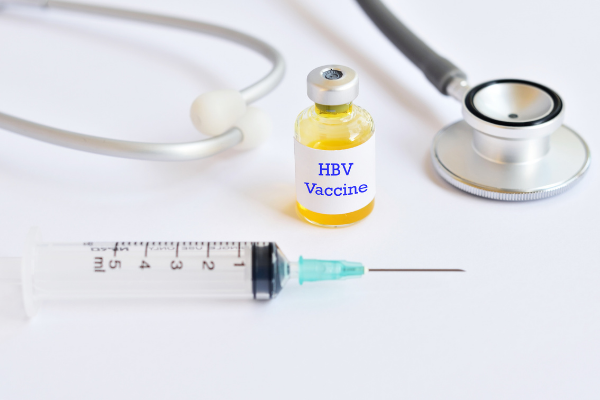Despite the availability of a highly effective vaccine, hepatitis B (HBV) remains a significant public health threat in the United States, with an estimated 862,000 people living with HBV and 21,600 new cases each year. HBV is primarily spread through sexual contact, sharing syringes and other injection equipment, or perinatally from parent to child at birth. HBV can cause significant damage to the liver, resulting in cirrhosis and liver cancer. Only 25% of adults are vaccinated against HBV in the U.S., and consequently progress on HBV prevention and elimination has stalled, with cases increasing in recent years, in particular among people who inject drugs (PWID). In addition to PWID, HBV also disproportionately impacts men who have sex with men, people with a history of incarceration, refugees, immigrants, and migrants, and Black and other people of color in the U.S.—populations that may face stigma, discrimination, or other barriers when seeking healthcare services. Scaling up HBV vaccination and assuring effective community outreach to address gaps and inequities is critical to the elimination of viral hepatitis. Consequently, NACCHO expresses support for the Advisory Committee on Immunization Practice’s (ACIP’s) proposed recommendation for universal adult HBV vaccination.
LHDs are ideally situated to play a key role in increasing adult HBV vaccination coverage nationwide. According to NACCHO’s 2019 Profile assessment, 88% of LHDs conduct adult immunization, the most frequently provided clinical service in a LHD. LHDs also coordinate with a variety of local stakeholders to prevent and eliminate viral hepatitis, providing and assuring access to HBV vaccination, testing, and treatment, conducting outreach to healthcare providers and populations at high risk for hepatitis, and providing hepatitis services in STI, harm reduction, and correctional settings.
Transitioning from risk-based guidelines to a universal recommendation for adult HBV vaccination could dramatically increase HBV vaccination rates in both the general population and among populations disproportionately affected by HBV. Risk-based guidelines present a significant challenge as clinicians often are not aware of patients’ risk factors for HBV and clinical decision support is not available in immunization information systems when using risk-based recommendations. Additionally, patients may be hesitant to disclose, recognizing the stigma, discrimination, and social and structure barriers that limit access to care among the populations most impacted by HBV. A universal recommendation could encourage healthcare providers to expand HBV vaccination among the general population, enabling LHDs to focus on conducting outreach to assure access to HBV vaccination for priority populations.
A universal adult HBV vaccination recommendation is an important step toward increasing access to HBV vaccination. However, scaling up HBV vaccination and implementing tailored and innovative approaches to outreach and messaging will require a multi-disciplinary effort ranging from the local to national level. It is imperative to ensure that partners and stakeholders, including LHDs, receive the needed resources and support to efficiently and effectively operationalize this critically important recommendation.



